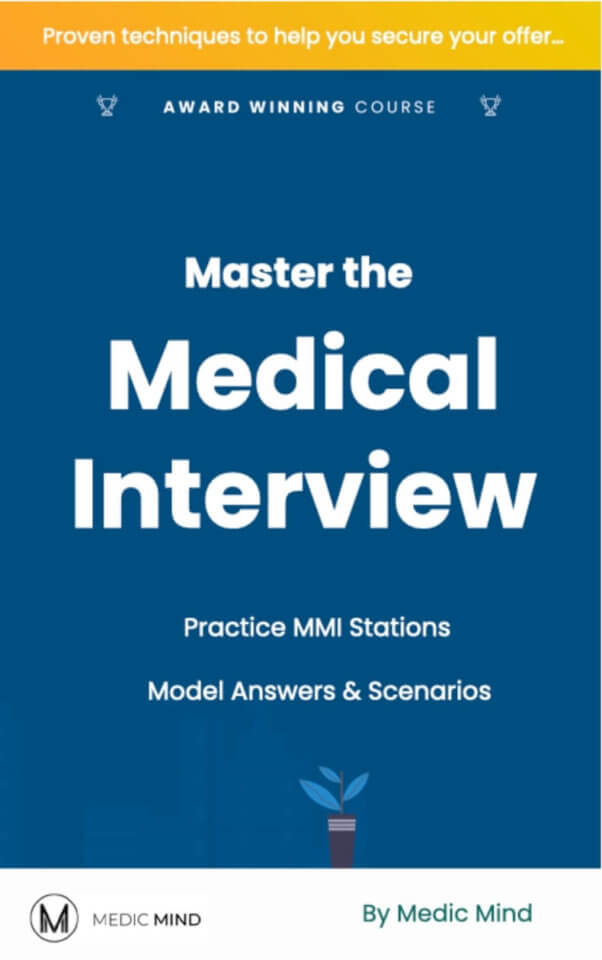Loading...

What Are The 6 NHS Core Values
The NHS (National Health Service) in the UK is one of the largest healthcare systems in the world, employing over 1.5 million people. The NHS has identified six core values that underpin its work, which is central to providing the best possible care for patients. It is important for students applying to study medicine, to understand these core values as it is likely that they will form part of the medicine interview questions. In this article, we will discuss these core values in detail.
1- Respect and Dignity:
The NHS strives to treat every patient with respect and dignity, regardless of their background or circumstances. This means acknowledging their individuality, preferences, and beliefs and ensuring they are involved in decisions about their care.
Respect and dignity are critical values for healthcare professionals. Students can demonstrate these in their medical school interviews by discussing their experiences of showing respect and dignity to patients and colleagues. For example, they might share times when they have respected patient confidentiality or treated colleagues with kindness and professionalism.

2- Commitment to Quality of Care:
The NHS is committed to providing high-quality care to every patient, using the best available evidence and clinical expertise. This includes continually reviewing and improving its services to ensure patients receive the best possible care.
Students can demonstrate this in their interviews by discussing their understanding of evidence-based medicine and how they apply it in practice. They can also share their experiences of working collaboratively with others to improve patient outcomes, such as participating in quality improvement projects or volunteering in healthcare settings.
3- Compassion:
Compassion is at the heart of the NHS, and it means caring for patients with empathy, kindness, and sensitivity. Healthcare professionals in the NHS are trained to provide compassionate care, recognising the emotional and psychological impact of illness on patients and their families.
Students can demonstrate this in their medical school interviews by sharing examples of times when they have provided compassionate care to patients. This might include times when they have gone above and beyond to ensure patients feel comfortable or have taken the time to understand a patient’s emotional and psychological needs.
4- Improving Lives:
The NHS is dedicated to improving the health and well-being of patients and to promoting public health and wellbeing. This means working with communities to prevent illness and disease and providing accessible, effective, affordable healthcare services.
During the interview, students can demonstrate their commitment to improving lives by discussing their passion for public health and how they have worked to promote health and well-being within their community. They can also share their understanding of the social determinants of health and how they can impact patient outcomes.
5- Working Together for Patients:
The NHS is a team effort, and its success depends on the collaboration of healthcare professionals, patients, and their families. This core value emphasises the importance of working together to provide the best possible care for patients, with a shared commitment to their wellbeing.
Students can demonstrate this in their interviews by discussing their experiences of working collaboratively with other healthcare professionals. For example, they might share times when they have collaborated with nurses or pharmacists to ensure patients receive the best possible care.
6- Everyone Counts:
The NHS is committed to providing care that is inclusive, responsive, and accessible to all, regardless of age, gender, ethnicity, religion, or sexuality. This means recognising and valuing the diversity of patients and staff and ensuring that services are tailored to meet the needs of everyone.
During their interviews, students can demonstrate this by discussing their experiences of tailoring care to meet individual patient needs. For example, they might share times when they have taken the time to understand a patient’s cultural or linguistic needs to provide more effective care.
In conclusion, the six core values of the NHS are an essential component of its work, and they provide a framework for delivering high-quality care to patients. Understanding and embodying these core values is crucial for healthcare professionals working in the NHS, as they are central to providing patients compassionate, effective, and person-centred care.
FAQs
→ What is the format of the medical interview?
The format of the medical interview can vary depending on the institution and the program to which you are applying. However, most medical school interviews are conducted in-person or virtually and usually take between 30 minutes to an hour.
The interview may be structured, with a set of predetermined questions, or unstructured, with a more free-flowing conversation. The questions can cover a wide range of topics, including your background, experiences, motivations, and ethical reasoning. Some schools may also include scenarios or role-playing exercises as part of the interview process. Check out MedicMind’s Medicine Interview guide for expert tips and advice.
→ What is the difference between an MMI and a panel interview?
An MMI, or Multiple Mini Interview, is a type of interview format used by some medical schools. It consists of a series of stations, each with a different scenario or task, where applicants rotate through and are assessed by different interviewers. The scenarios may be related to ethical dilemmas, communication skills, teamwork, or problem-solving.
In contrast, a panel interview is a more traditional format where a group of interviewers (usually 2-4) ask questions of the applicant at the same time. The questions in a panel interview may be more general or specific to the applicant’s experiences and background.
→ Do all universities have medical interviews?
Not all universities have medical interviews, but most medical schools do require an interview as part of their admissions process. Some schools may use a combination of interviews, essays, and other factors to evaluate applicants, while others may use the interview as the primary means of evaluating applicants. It’s important to check the specific requirements of each school to which you are applying to ensure that you are prepared for the admissions process.
Related links
Get instant feedback on responses to questions to hone your answers.
Gain access to 100+ tutorials, practice stations and online content including university-specific information.
20 station circuit where you'll gain insight and practice for your medical interview.





Was this article helpful?
Still got a question? Leave a comment
Leave a comment